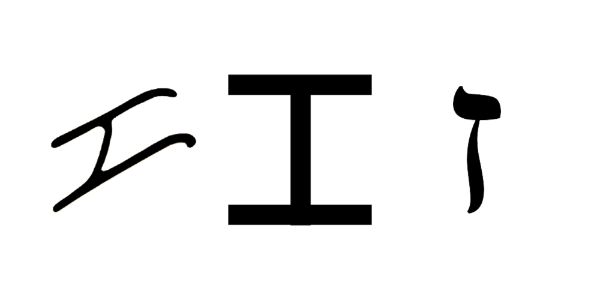The word yashar (𐤉𐤔𐤓) means “righteous” meaning acting in an upright, moral way; virtuous. It is also the name of “Jasher son of Caleb”.
There’s only one person who goes by that name in the scriptures, and he’s a 𐤁𐤍 (ban) of 𐤊𐤋𐤁 (Kalab) the 𐤁𐤍 (ban) of 𐤇𐤑𐤓𐤅𐤍 (Khatsarauan), 𐤁𐤍 (ban) of 𐤐𐤓𐤑 (Pharats), 𐤁𐤍 (ban) of 𐤉𐤄𐤅𐤃𐤄 (Yahauadah) / 𐤉𐤄𐤉𐤃𐤄 (Yahayadah) and 𐤕𐤌𐤓 (Tamar). This 𐤊𐤋𐤁 (Kalab) is not the famous friend of 𐤉𐤄𐤅𐤔𐤏 (Yahauashaā) but the only other 𐤊𐤋𐤁 (Kalab) mentioned in the scriptures.
𐤉𐤔𐤓 (Yashar) plays no further role in the scriptures, and the only additional info we have on him is that his mother is called either 𐤏𐤆𐤅𐤁𐤄 (Āzauabah) or 𐤉𐤓𐤉𐤏𐤅𐤕 (Yarayaāuat) and his brothers are 𐤔𐤅𐤁𐤁 (Shauabab) and 𐤀𐤓𐤃𐤅𐤍 (Aradauan). Their half-brother 𐤇𐤅𐤓 (Khauar) is a 𐤁𐤍 (ban) of 𐤀𐤐𐤓𐤕 (Apharat).
Extended Study for 𐤉𐤔𐤓 (yashar)
To read the study guide entry that elaborates on 𐤉𐤔𐤓 (yashar) then join our Extended Study Membership at https://www.paleohebrewdictionary.org/extended or use phdict.org/extended to share a short link with others.





